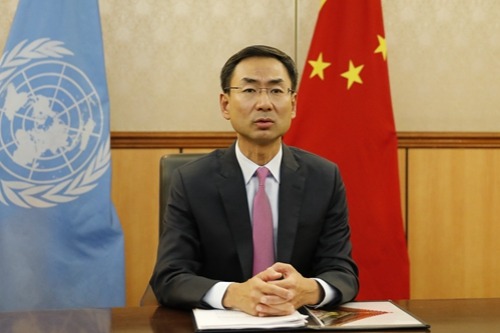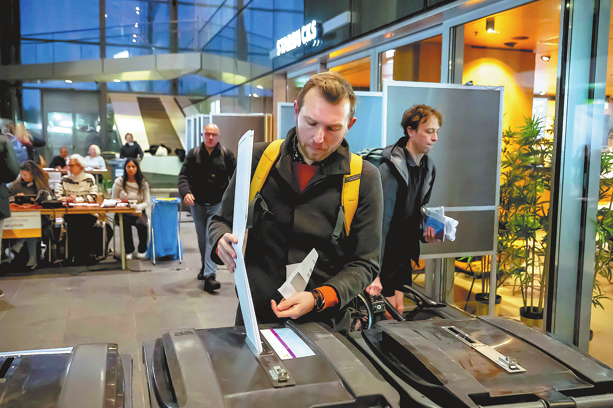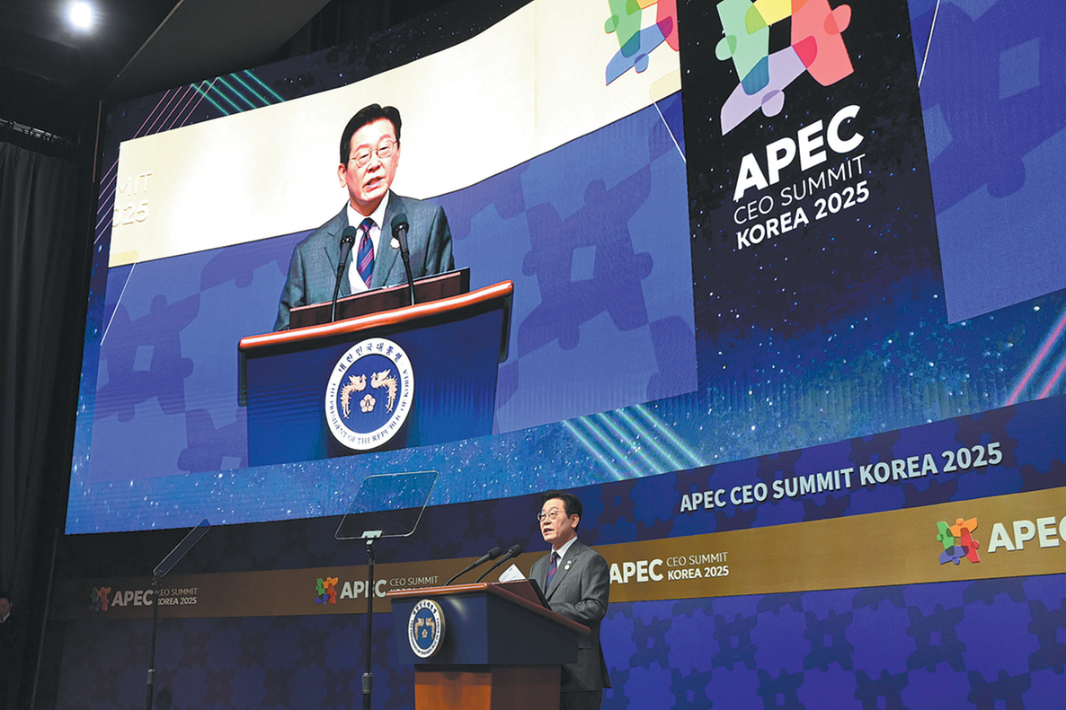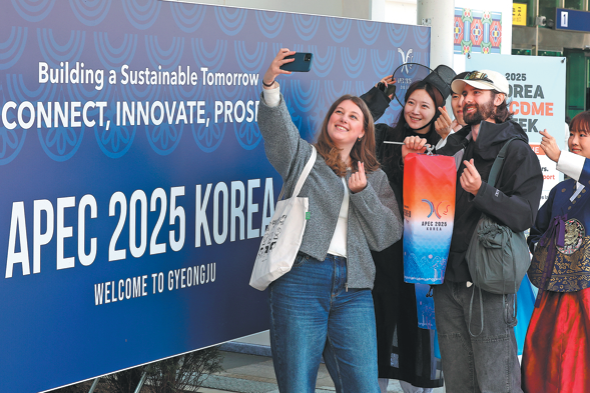Multilateralism prevails despite headwinds: Experts

Multilateralism and rules-based open trade remain "alive" despite rising global protectionism and geopolitical tensions, experts said on Wednesday at an Asia-Pacific Economic Cooperation gathering in South Korea.
Institutions such as the World Trade Organization and the Asian Infrastructure Investment Bank continue to play a vital role in promoting multilateralism even amid mounting challenges, the experts said during panel discussions on Asia-Pacific regional cooperation in the geoeconomic era at the APEC CEO Summit in Gyeongju, North Gyeongsang Province.
Tomochika Uyama, senior adviser to the WTO director-general, said the multilateral trading system "with the WTO at its core is really alive".
"Maybe many of you might think (it) is dead," Uyama said, acknowledging the challenges to free trade such as rising protectionism and unilateral tariffs.
The global trading system is "under severe stress" because of these trends and geopolitical fragmentation, he said. Still, more than 70 percent of global goods trade this year was conducted in line with WTO rules, he added.
In its latest report published on Oct 7, the WTO said the global merchandise trade outpaced expectations in the first half of the year, driven by increased spending on AI-related products, a surge in North American imports ahead of tariff hikes, and strong trade among the rest of the world.
The WTO economists have raised their forecast for global merchandise trade growth this year to 2.4 percent, up from 0.9 percent in August. However, the WTO projects growth to ease to 0.5 percent next year as the global economy slows down and the higher tariffs set in.
Kazuto Suzuki, director of the Institute of Geoeconomics in Tokyo, said geoeconomics is "all about interconnected, interdependent economies", but noted that states sometimes exert control over these linkages.
"So in this context, the geoeconomics is extremely important. And then the question we can ask — what about multilateralism? For many years, we have been talking about the multilateral rules-based international order and how we can revive it, how we can ensure it," Suzuki said, citing the presence of several multilateral institutions.
Green infrastructure
Ajay Bhushan Pandey, vice-president for investment solutions at the Asian Infrastructure Investment Bank, underscored the key role of multilateralism and the AIIB's mission as a multilateral development bank to build the "infrastructure for tomorrow".
The bank's priorities include promoting green infrastructure and interconnectivity while encouraging private sector participation — a key element as some governments, especially in developing economies, face fiscal constraints, Pandey said.
However, private investment can only come in if governments provide incentives such as implementing clear policies on private sector financing for infrastructure, he said.
In a separate panel discussion, Anna Bjerde, managing director of operations at the World Bank, emphasized the importance of supporting local businesses to create jobs and the role of infrastructure development, including building of roads, hospitals and schools.
The World Bank's initiatives, such as capital provision, equity guarantees and political risk insurance, support private sector growth and encourage policymakers to reduce nontariff barriers, she said.
Contact the writers at prime@chinadailyapac.com

































